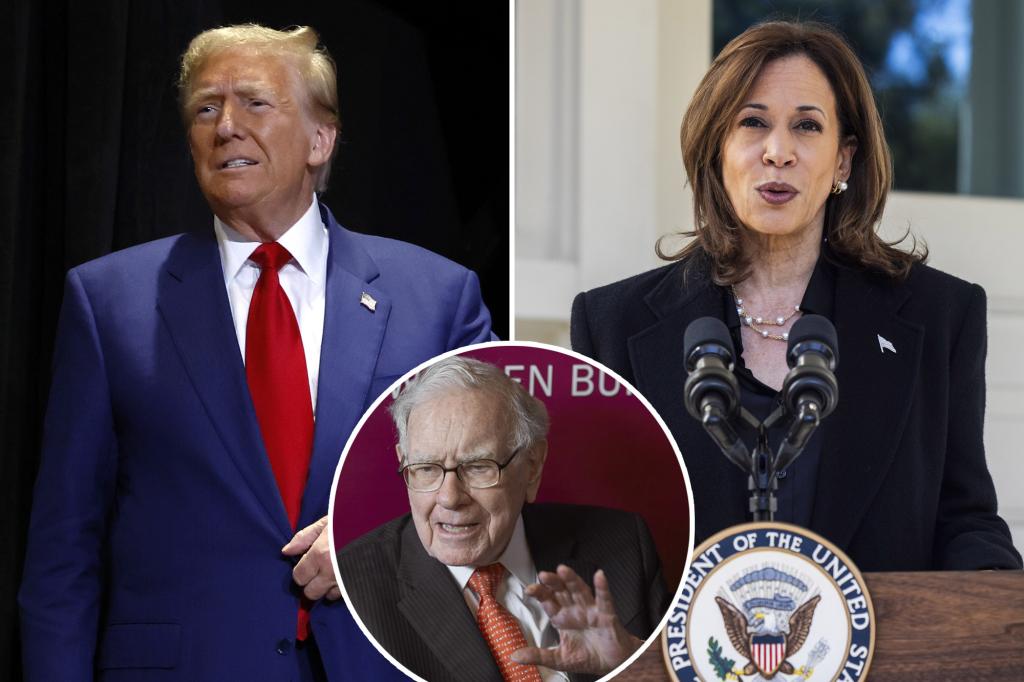Billionaire Warren Buffet announced that he will not be endorsing Vice President Kamala Harris or former President Donald Trump in the upcoming 2024 election. Buffet, one of the world’s wealthiest individuals, has supported Democratic candidates in three out of the last four presidential elections. His decision not to endorse any political candidate was made public on his website to address false claims circulating on social media about his endorsements related to both investment products and political figures.
Buffet, known as the “Oracle of Omaha,” is considered one of the most successful and influential investors in American history with an estimated net worth of nearly $145 billion, placing him at the No. 6 spot on Forbes’ “Real-time billionaires” list. Despite his past public support for Democrats such as Hillary Clinton in 2016 and Barack Obama in the 2012 and 2008 presidential campaigns, Buffet did not endorse either President Joe Biden or former President Trump in the 2020 election.
Following Buffet’s announcement, news broke that billionaire Bill Gates had donated $50 million to a political organization supporting Kamala Harris’s potential presidential run in 2024. Gates, the co-founder of Microsoft with an estimated net worth of $162 billion, joined 81 other billionaires in financially backing Harris’s White House aspirations, according to Forbes. In contrast, former President Trump has secured the support of 50 billionaires, including prominent figures like Elon Musk, the CEO of Tesla and SpaceX.
The decision by Buffet not to endorse any political candidate comes amid growing concerns about misinformation and fraudulent claims circulating on social media platforms. The memo posted on his website aimed to address these false claims related to both investment products and political endorsements, clarifying that Buffet does not endorse any investment products or political candidates. This move serves as a reminder of the potential risks that public figures face in the digital age where misinformation can easily spread and affect their reputation.
Despite his immense wealth and influence, Buffet has chosen to distance himself from political endorsements, aligning with his longstanding principled approach to investing and public statements. His decision not to endorse Vice President Harris or former President Trump in the upcoming election is consistent with his past support for Democratic candidates, although he refrained from publicly endorsing candidates in the 2020 presidential race. As one of the most respected figures in the business world, Buffet’s stance on political endorsements reflects his commitment to remaining unbiased and focused on his investments and philanthropic endeavors.
In a landscape where billionaires like Gates, Musk, and others are backing political candidates, Buffet’s decision to opt out of endorsing Harris or Trump stands out as a unique choice. With his vast wealth and influence, Buffet’s non-endorsement could potentially have a ripple effect in the political arena, prompting other wealthy individuals to reconsider their involvement in endorsing political candidates. As the 2024 presidential election approaches, Buffet’s stance may spark conversations about the role of billionaires in politics and the impact of endorsements on public perception and democratic processes.













